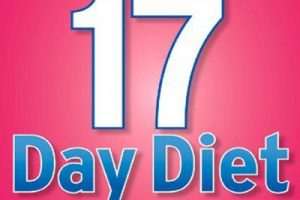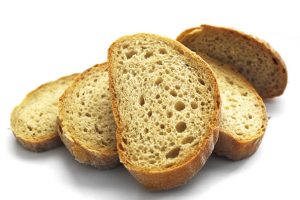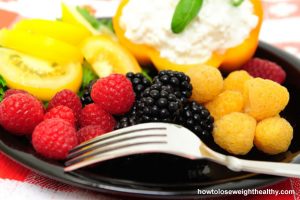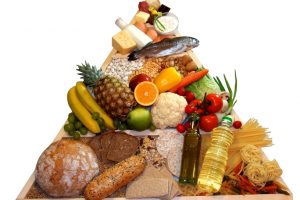There has been an ongoing push in the weight loss industry towards high protein, low carbohydrate diets. Whilst some of these diets feature extreme methods that involve eliminating all forms of carbohydrates, an approach which puts the dieter at risk of nutrient deficiencies and does not develop a healthy long term eating pattern, there is some evidence that a more moderate approach to the high protein craze may be beneficial for weight loss.
It is thought that protein can satisfy hunger better than carbohydrates or fats. Therefore a diet higher in protein may keep us fuller for longer and reduce overall intake of food. A recent study published by The American Journal of Clinical Nutrition suggested that when following a higher protein diet, participants ate less overall calories, as well as feeling less hungry and achieving fast weight loss.
Other studies have also found reduced levels of unhealthy fat in the blood and increased weight and fat loss in participants following high protein diets; however, further research into why this occurs is necessary before higher protein diets can be recommended to everyone.
The amount of protein and carbohydrate required in a person’s diet varies greatly depending on physical activity, age, and any medical conditions they may have.
The recommended intake of protein daily is 56 grams for men and 46 grams for women, however, a gradual increase in protein to about 120 grams per day may provide weight loss benefits. Although there is unlikely to be any negative effects of increasing protein, it is important to speak to a health professional before increasing your protein intake drastically.
Also remember that if you are increasing your protein intake, you will need to decrease your intake of other foods such as carbohydrates and fats, or you will end up eating more calories, the quickest way to gain weight! It is also essential to maintain a balanced meal (and diet), containing whole grains, fruit, vegetables and unsaturated fats.
What Proteins to choose?
When following a weight loss diet not all protein sources are created equal. Many sources, particularly those from animals, are high in fat and calories, and whilst they may keep your fuller for longer, you may also gain weight due to the excess calories. The quality of the protein is also important.
Those from animal sources contain all the essential amino acids required for cell regeneration and muscle growth in the body, whilst those from plant sources tend to be incomplete. You need to eat a variety of different plant proteins to obtain all the amino acids. Protein sources that contain other key nutrients such as minerals or vitamins are the best choice.
5 High Protein Foods for Weight Loss
1. Low fat dairy products
Low fat diary provides good quality protein in addition to calcium that is essential for strong bones. Dairy can easily be added to dishes to increase the overall protein content, for example, stirring a little natural low fat yogurt into a vegetable soup.
Or make a quick high protein breakfast on the run, with a skim milk fruit smoothie. One cup of skim milk contains 8g of protein and all the nine essential amino acids. Be sure to choose low fat options, as these are lower in calories, and limit higher fat foods such as hard cheese to a couple of serves a week.
2. Fish
Fish is an excellent source of protein, and can be a better choice than red meat or chicken, as it generally has lower calorie content. For example a six pound porterhouse steak contains 38 grams of protein, but it also has 41 grams of fat (a lot of which is unhealthy unsaturated fat), and about 540 calories.
The same weight of salmon contains almost as much protein (36 grams), but has less than half the fat, and only about 350 calories. Oily fish such as salmon and mackerel also contain heart healthy omega three fatty acids.
3. Eggs
Eggs are an incredibly rich source of protein, as well as other important nutrients such as B vitamins which are important for converting food into energy in the body and selenium, a powerful antioxidant. Unfortunately, eggs are also fairly energy dense and the yolk is quite high in fat. For weight loss, you may find it helpful to use only the egg whites, which are high in protein and low in calories and fat, however as most of the other nutrients are in the egg, try to include these from time to time.
A good way to do this is to make scrambled eggs with one whole eggs and 2 egg whites, giving the benefits of the yolk, but with less calories than three whole eggs.
4. Soy Protein
Sources such as tofu, soy milk and soy beans can all be good protein sources for weight loss. They are naturally low in fat and generally lower in calories than meat products. Soy protein is plant based; it does contain all of the essential amino acids, although some are in lower quantities than in animal products. It also provides valuable nutrients such as folate, potassium and fibre and has been found to lower blood cholesterol.
5. Poultry
Chicken, turkey and other forms of poultry, with the skin removed can all be good sources of protein in a weight loss diet. They are a lower fat alternative to meat, but still contain all the essential amino acids and important nutrients such as iron.
It is essential to choose low fat cooking methods such as grilling, steaming or baking with minimal added fat to keep the calorie and fat content low. Watch out for minced products as these may have fillers which lower the protein content and increase fat and calories.





